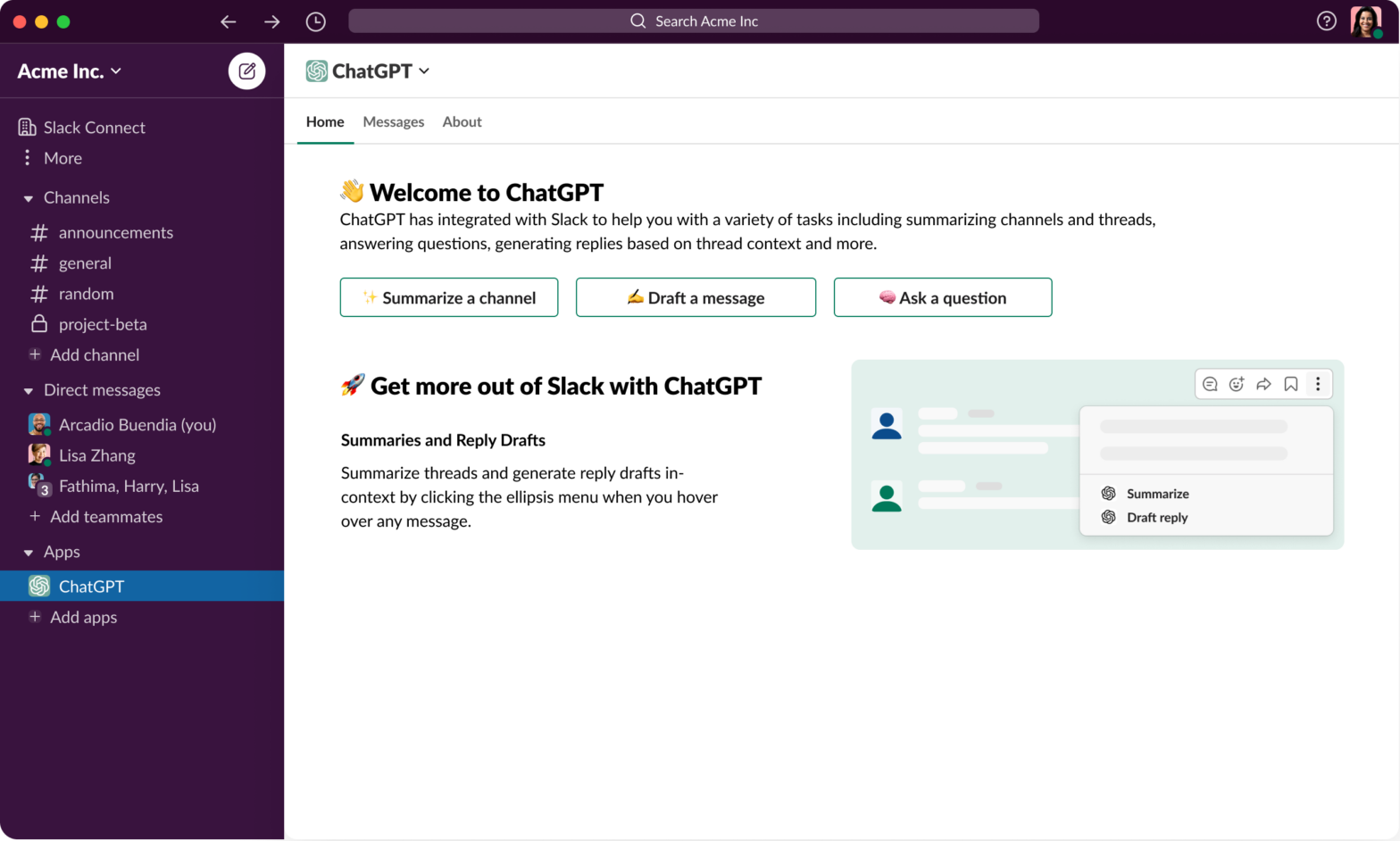The new software, built on top of Slack’s communication platform and currently in beta mode, will allow business employees to leverage writing assistance, research tools and conversation summaries to stay up to speed with operations.
AI-powered summaries of chats are designed to cut manual, individual catch-ups of developments out of employees’ schedules — allowing for more time in the day to focus on business value-add — while research tools can help with matters such as best practices and market research.
The app will be available alongside over 2,600 other integrations in the Slack ecosystem, allowing for granular security controls to safely manage third-party access of data.
To ensure protection and accuracy of the language model, any data that the app has permission to access will not be used to train the ChatGPT algorithm.
Knowledge found in Slack is now able to be combined with ChatGPT insights, in the aim to meet widespread demand among businesses for public and private data to be accessible in one place.
Salesforce research shows that 81 per cent of IT leaders believe generative AI should combine public and private data sources.
With OpenAI choosing Slack as its workplace communications partner, external communications platform Slack Connect and collaboration tool Huddles are set to be integral to OpenAI’s operating model for customer communications.
“I love Slack Connect so much. We were very early adopters, and, alongside Huddles, it’s been the lifeblood of our customer communications,” said Zack Kass, head of GTM at OpenAI.
“I think it’s the coolest workspace communication advancement ever. Injecting our own technology into this product has supercharged our ability to connect with and delight our customers. Life without it with our customers is unimaginable.”
Noah Desai Weiss, chief product officer at Slack, commented: “OpenAI has been a great Slack customer, and we’re even more excited for them to be an amazing Slack partner.
“The ChatGPT app for Slack deeply integrates the power of OpenAI’s cutting edge large language models into Slack’s conversational interface. There couldn’t be a more natural fit.
“This will give customers new superpowers by helping them tap the collective knowledge of their organisation’s channel archives. We’re excited to partner with OpenAI to bring more generative AI powers directly into Slack to deliver productivity efficiencies for everyone.”
Since acquiring workplace messaging service Slack in December 2020, Salesforce has looked to speed up insight delivery and productivity across organisations.
The beta version of the ChatGPT for Slack app can be found here.
Related:
The challenge of using ChatGPT for search engines — Large language models (LLMs) such as ChatGPT may be emerging as complements for search engines, but there are still pitfalls to consider.
Will ChatGPT make low-code obsolete? — ChatGPT may do what low-code has been trying to achieve for years – putting software development into the hands of users.










